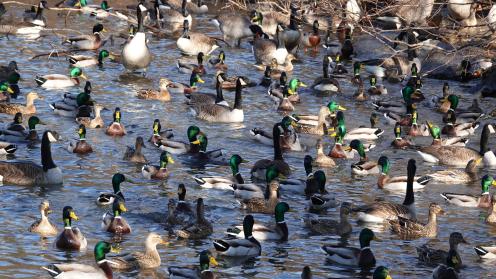Biodiversity
Biological diversity, or biodiversity, is most often associated with the earth’s vast variety of plants, animals, and microorganisms, but the term encompasses diversity at all levels—from genes to species to ecosystems to landscapes. Scientists estimate there are approximately 8.7 million species globally, of which approximately 2.2 million are marine. In spite of 250 years of research and over 1.2 million species already identified, it is possible 86% of existing species on Earth and 91% of species in the ocean still await description.
In each ecosystem, including those that occur within or among forests, wetlands, mountains, deserts, and rivers, living creatures interact with each other as well as with the air, water, and soil around them, forming an interconnected community. The ecosystem services provided by biodiversity are estimated to be worth trillions of dollars—double the world’s GDP. Biodiversity also includes genetic differences within species, such as different breeds and varieties, as well as chromosomes, genes, and genetic sequences (DNA). Biodiversity also has human benefits. For example, many new medicines are harvested from nature, such as the rosy periwinkle, which provides two very important cancer-fighting medicines.
